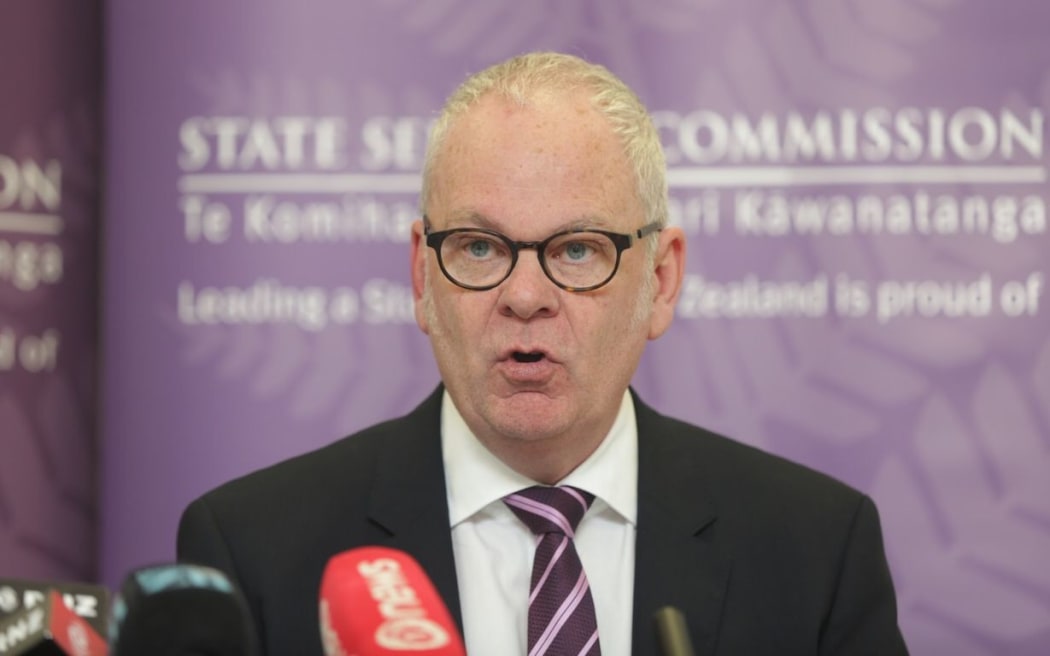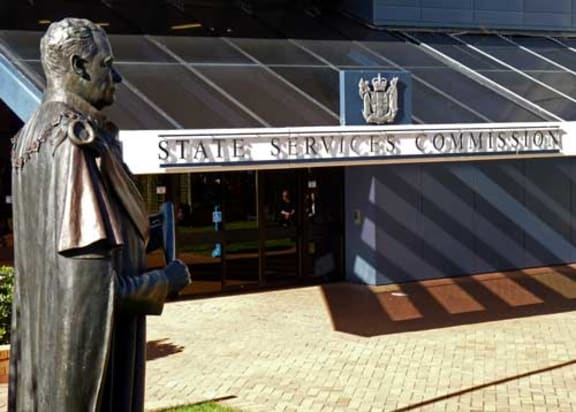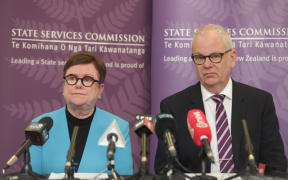Opinion - New Zealand's public sector has a reputation for trust and integrity, but it is not without flaw, says Dr Michael Macaulay.

State Services Commissioner Peter Hughes. Photo: RNZ / Rebekah Parsons-King
The Beattie report into Ministry of Transport concludes that the three employees who lost their jobs after they voiced concerns over criminal allegations suffered a disadvantage because they spoke up.
It is good to see that there has been a full and frank apology from Peter Hughes, Chief Executive of the State Services Commission (SSC) in regard to this matter.
Equally as important is the acknowledgement that there are problems in the public service in identifying, reporting and investigating allegations of misconduct.
Such issues are not new. The SSC's 2013 Integrity and Conduct survey clearly identified that many members of the public service were concerned about reporting misconduct, especially in terms of bullying and harassment.

Photo: Nigel Roberts / teara.govt.nz
Similar issues have also been flagged in our latest report, Survey of Organisational Whistleblowing Processes and Procedures - Analysis from Australia and New Zealand, which was published two weeks ago.
The report is the first set of findings from the Whistling While They Work 2 research project, led by Griffith University, with a research team including the Australian National University, University of Sydney and Victoria University of Wellington. It is supported by 23 partner and supporter organisations including, the New Zealand SSC and Ombudsman's office.
The report assessed the strengths and weaknesses of 699 public and private sector organisations across Australia and New Zealand based on five key components: (1) incident reporting and tracking; (2) support strategies; (3) risk assessment; (4) dedicated support; (5) remediation.
We found that the New Zealand public sector scored lower than all equivalent Australian jurisdictions except for Tasmania and Northern Territories.
In particular we found that 30 percent of NZ public sector agencies had no particular system in place for recording and tracking wrongdoing concerns, only doing so as and when need arises, compared with 16 percent of equivalent Australian agencies. Twenty-three percent had no particular support strategy for staff who raise wrongdoing concerns.
In addition 36 percent of NZ public sector agencies provided staff with a management-designated support person if they raised concerns, which was somewhat lower than the mean average score across all agencies of 46 percent.
The new 'Speaking Up' standards, also announced by SSC this afternoon, are a welcome step in the right direction.
Their focus on organisational safety and robust processes are certainly helpful. But there is potentially a much further journey ahead.
It is notable that the Beattie report also calls for a review of the Protected Disclosures Act (PDA), which is an option that has cropped up in our research. What that might look like is open to question, but it is clear that the PDA is not widely used.
Last year, the Ombudsman's office reported that it had received on average 10 requests for guidance and assistance per year since 2001.
New Zealand has a well-earned and well-deserved reputation for integrity, but that does not mean that it is without flaw.
First and foremost it is crucially important that the three people made unemployed from the Ministry of Transport have been acknowledged and treated properly. In the longer term their case will hopefully prove to be a milestone in New Zealand's ongoing journey to improving its trust and integrity.
* Dr Michael Macaulay is the New Zealand academic lead on Whistling While They Work 2, and is the Associate Dean of Professional and Executive Education at Victoria Business School.






